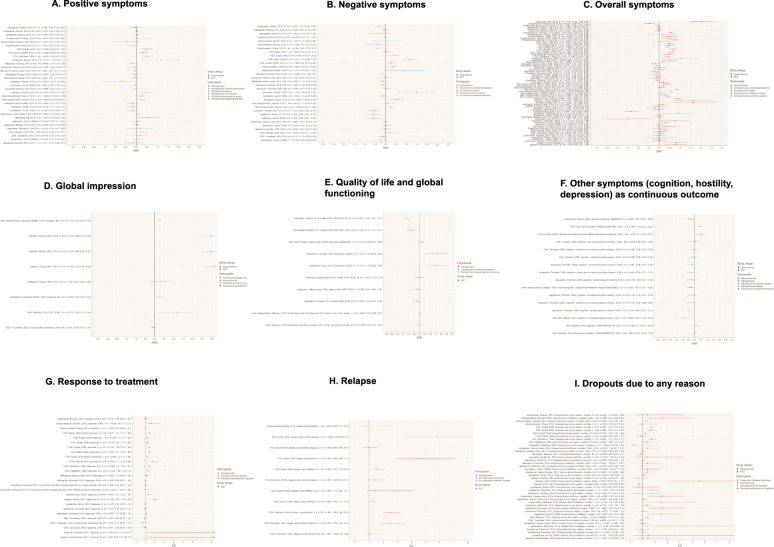Fig. 2. Quantitative meta-review of clozapine-specific meta-analytic data: Efficacy.
A Positive symptoms. FGA first-generation antipsychotic, k number of studies, L long-term, M medium-term, n number of participants, RCT randomized controlled trial, S short-term, SGA second-generation antipsychotic. Abbreviated study descriptions: Leucht et al., 2009a [76], Leucht et al., 2009b [76], Leucht et al., 2009c [79]. For continuous outcomes, SMD > 0 means a beneficial outcome for clozapine (e.g. more response or less adverse events. B Negative symptoms. FGA first-generation antipsychotic, k number of studies, L long-term, M medium-term, n number of participants, RCT randomized controlled trial, S short-term, SGA second-generation antipsychotic. Abbreviated study descriptions: Leucht et al., 2009a [76], Leucht et al., 2009b [76], Leucht et al., 2009c [79]. For continuous outcomes, SMD > 0 means a beneficial outcome for clozapine (e.g. more response or less adverse events. C Overall symptoms. FGA first-generation antipsychotic, k number of studies, L long-term, M medium-term, n number of participants, RCT randomized controlled trial, S short-term, SGA second-generation antipsychotic. Abbreviated study descriptions: Leucht et al., 2009a [76], Leucht et al., 2009b [76], Leucht et al., 2009c [79]. For continuous outcomes, SMD > 0 means a beneficial outcome for clozapine (e.g. more response or less adverse events. D Global impression. FGA first-generation antipsychotic, k number of studies, L long-term, M medium-term, n number of participants, RCT randomized controlled trial, S short-term, SGA second-generation antipsychotic. For continuous outcomes, SMD > 0 means a beneficial outcome for clozapine (e.g. more response or less adverse events. E Quality of life and global functioning. CGAS Children’s Global Assessment Scale, FGA first-generation antipsychotic, k number of studies, L long-term, M medium-term, MLDL Münchner Lebensqualitäts–Dimensionen–Liste, n number of participants, RCT randomized controlled trial, S short-term, SGA second-generation antipsychotic, SWN Subjective Wellbeing under Neuroleptics Scale, WHO-QOL: WHO-Quality of life. For continuous outcomes, SMD > 0 means a beneficial outcome for clozapine (e.g. more response or less adverse events. F Other symptoms (cognition, hostility, depression) as a continuous outcome. BPRS Brief Psychiatric Rating Scale, CGI clinical global impressions, FGA first-generation antipsychotic, k number of studies, L long-term, M medium-term, n number of participants, PANSS Positive and Negative Syndrome Scale, RCT randomized controlled trial, S short-term, SGA second-generation antipsychotic. For continuous outcomes, SMD > 0 means a beneficial outcome for clozapine (e.g. more response or less adverse events. G Response to treatment. FGA first-generation antipsychotic, k number of studies, L long-term, M medium-term, n number of participants, RCT randomized controlled trial, S short-term, SGA second-generation antipsychotic. For dichotomous outcomes, RR > 1 means a beneficial outcome for clozapine (e.g. more response or less adverse events/dropouts). H Relapse. FGA first-generation antipsychotic, k number of studies, L long-term, M medium-term, n number of participants, RCT randomized controlled trial, S short-term, SGA second-generation antipsychotic. abbreviated study descriptions: Leucht et al., 2009a [76], Leucht et al., 2009b [76], Leucht et al., 2009c [79]. For dichotomous outcomes, RR > 1 means a beneficial outcome for clozapine (e.g. more response or less adverse events/dropouts). I Dropouts. FGA first-generation antipsychotic, k number of studies, L long-term, M medium-term, n number of participants, RCT randomized controlled trial, S short-term, SGA second-generation antipsychotic. For dichotomous outcomes, RR > 1 means a beneficial outcome for clozapine (e.g. more response or less adverse events/dropouts).

